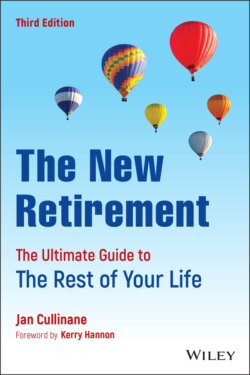Читать книгу The New Retirement - Jan Cullinane - Страница 40
In-Person Learning
ОглавлениеThere are suggestions for living in a college town in Chapter 5, but let's take a look at how you can enjoy learning for free/low cost in person at educational institutions such as universities, colleges, and community colleges. Most offer tuition-free classes on a space-available basis if you meet certain criteria. You may not be awarded any credits, and you'll need to pay for any books and perhaps some associated fees, but what a gift.
As an example, I will use my alma mater for my undergrad and master's degree, the University of Maryland (Go Terps!). Their “Golden ID Program” permits you to enroll in up to three classes/semester on a space-available basis – tuition-free. You must be 60 years of age or older, a legal resident of Maryland, and retired, which is defined as “not engaged in gainful employment for more than 20 hours a week.” There is a fee for the Golden ID (about $260 per semester), which allows the use of the libraries, shuttle buses, and some additional services. With a three-credit in-person class normally around $1,000, if you're enrolling in three classes, it's a good deal. Community colleges can be a lot cheaper. I was an Assistant Professor at Sussex County Community College in New Jersey for a number of years. Their deal is a bargain. You need to be 65 or older, a resident of the county, meet any prerequisites for the class (some, like lab classes or trade classes are excluded), and register in person the final two business days before the start of the semester. No fees, no tuition. Taking in-person classes provides the additional benefit of social connections along with the sheer joy of learning – without the tests and papers. Sweet!
If you're thinking about getting a formal degree, many colleges exempt “mature” students from the SAT or ACT. CLEP, the College Level Examination Program (https://clep.collegeboard.org), allows you to earn college credits by passing exams in a variety of subjects. Cost per exam is about $90 (often free for military personnel).
OLLI (Osher Lifelong Learning Institute, www.osherfoundation.org), offered in more than 120 U.S. institutions of higher learning, is a philanthropic organization that supports lifelong learning for adults 50 and older. OLLI offers member-driven classes (no credit/no assignments/no grades) facilitated by peers and college faculty. Using Arizona State University as an example, there is a small membership charge (about $20/semester) and then a reasonable charge for a class (Example: $14 for a 1.5 hour class); you may need to pay for parking/transportation on campus. Classes can literally range from A to Z. For example, “Ancient Etruscan and Roman Art” to “Zhivago: The Novel and the Movie.”
Be sure to investigate what your local library, community center, school system and/or county offers. You'll be surprised how many quality and free (love that word!) classes/lectures/workshops are out there. (I am on the Board of Trustees of my local library and the number of no-cost courses that are offered, both in person and virtually, is impressive.)
